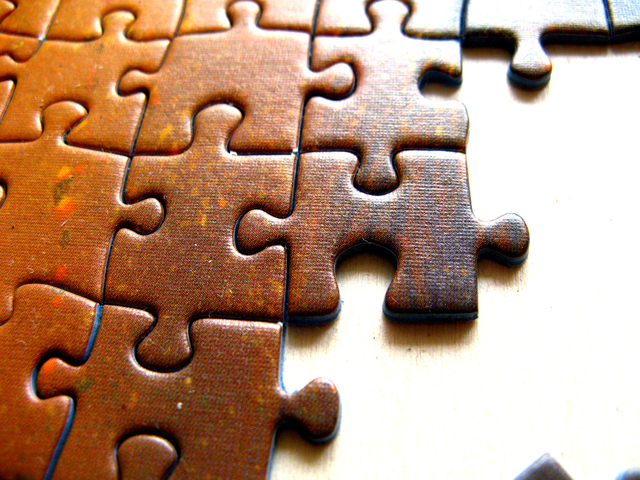
A Brain-boosting Holiday tradition
One of my family's holiday traditions is to complete a jigsaw puzzle (minimum of 2,000 pieces) by January 6.
Last year, after we opened the puzzle box and dumped out the pieces, it dawned on me that this is probably one of the best brain exercises available.
Think of all the brain areas we engage when completing a puzzle: goal-directed persistence, spatial manipulation, foreplanning, visual discernment, fine motor skills, critical analysis, paradigm shifting, etc.
What Puzzles do for the Brain
Working on a puzzle requires us to organize the pieces and create a plan of attack.
At first, the pieces look like shredded comics from the newspaper (remember them?).
The hues of blue just look “blue” until we are left with only blue pieces. Then we notice the thin grey squiggle, the grains of green, the tiny white dot, or the fleck of orange.
Our family tradition is to form the border first - this is the only sequencing nobody debates.
My husband looks at the picture on the box, which I consider cheating, because it’s akin to looking at the answer key.
Trial and Error
Nothing comes easily; the pieces rarely fit together on the first try.
You cannot finish a 2000 piece puzzle in one sitting. If you can, please email me so I can interview you.
If you get frustrated with your area, your brain may toggle onto a new set of shapes, patterns, or colors.
Sometimes you need to flip your pieces upside-down to see how they fit into "the big picture".
And sometimes, we correctly predict what piece will go into the surrounding pieces; much of the time we are wrong.
With time and effort, what initially seems impossible eventually becomes solvable.
Although each of us works independently on our own little part, we come together as a unit to put the whole thing together.
And voila, we have a beautiful, complete picture.
This holiday season, consider starting a brain-boosting puzzle tradition with your family.
Photo by Martin Boose from FreeImagesThe Brain Coach Blog is written by executive function coach Mary Turos. Based in Belair, MD, Mary is affectionately known as 'The Brain Coach" for her work helping people achieve harmony using strategies based in neuroscience.